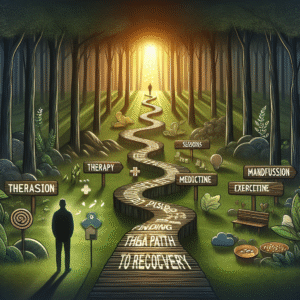Living sustainably doesn’t need to be overwhelming. You don’t need to overhaul your entire life overnight. Instead, you can create a more sustainable lifestyle by adopting one small, realistic change at a time. The key is to make choices that align with your values and fit seamlessly into your existing routines.
In this post, we’ll explore practical, eco-friendly changes that anyone can make—without the stress of trying to be perfect. We encourage you to pick one change to make today!
1. Consider Alternate Transportation Options
Transportation is a major contributor to carbon emissions. However, making more sustainable choices in this area doesn’t have to mean giving up your car entirely. Here are some easy, eco-friendly alternatives to consider:
- Walk or Bike More: For short trips, walking or biking is a simple and effective alternative to driving. Not only is it environmentally friendly, but it’s also great for your health and saves money.
- Use Public Transportation: If you live in an area with public transportation options, consider using them for daily commuting. Buses, trains, and subways are significantly more energy-efficient than individual car travel.
- Carpool or Rideshare: If public transport isn’t an option, consider carpooling with friends, family, or colleagues to reduce the number of vehicles on the road. Alternatively, rideshare apps can help you find others heading in the same direction.
- Invest in an Electric Vehicle (EV): If it’s within your budget, consider switching to an electric vehicle. EVs produce zero tailpipe emissions and can dramatically reduce your carbon footprint.
Remember to make changes gradually. You don’t have to carpool daily, but could you ride with a coworker every Wednesday? If you don’t take the bus to your job, can you take it to the concert you’re attending next month?
2. Reduce, Reuse, and Recycle
We’ve all heard the phrase “reduce, reuse, recycle,” but putting it into practice can feel overwhelming. The key is to approach it with intention rather than striving for perfection.
- Start by Reducing: Try to begin by reducing the amount of waste you create. This can be as simple as buying in bulk to reduce packaging waste or being more mindful of food waste.
- Reuse: Instead of constantly buying new products, look for ways to repurpose what you already have. For example, old glass jars can be used for storage, and fabric scraps can be turned into rags.
- Recycle Properly: Educate yourself on what can be recycled in your area and ensure you’re sorting your waste correctly.
3. Explore Plant-Based Eating
You don’t have to go fully vegan or vegetarian to make a difference. Even incorporating occasional plant-based meals can reduce your environmental impact. The production of plant-based foods typically requires fewer resources than animal-based products.
- Meatless Mondays: Start by committing to one meatless day per week. It’s a simple way to reduce your meat consumption without making drastic changes.
- Incorporate More Vegetables: Add more vegetables to your meals to replace meat or dairy products. Simple swaps like vegetable stir-fries or plant-based tacos can provide both variety and sustainability.
- Support Local Farmers: Whenever possible, buy fresh produce from local farmers’ markets or community-supported agriculture (CSA) programs. Not only will you be supporting local businesses, but you’ll also be choosing foods that are grown with fewer pesticides and chemicals.
4. Switch to More Sustainable Products
Sustainable living often involves rethinking the products you use every day. The good news is that eco-friendly alternatives are more accessible than ever—and they don’t have to break the bank.
- Use Reusable Bags: Instead of relying on single-use plastic bags, invest in reusable cloth bags for grocery shopping. Keep a few in your car or by the door so they’re easy to grab when you head out.
- Choose Eco-Friendly Cleaners: Many conventional cleaning products contain harsh chemicals that can harm the environment. Look for natural or eco-friendly cleaning supplies, or even make your own with ingredients like vinegar and baking soda.
- Switch to Reusable Items: Invest in reusable water bottles, coffee cups, and food containers. Not only do they reduce plastic waste, but they can also save you money over time.
- Buy Sustainable Clothing: Rather than buying fast fashion, opt for clothing made from organic or recycled materials. Look for companies that prioritize sustainable practices in production and packaging.
5. Be Mindful of Your Energy Consumption
Energy consumption is one of the biggest contributors to your carbon footprint. Fortunately, it’s fairly easy to reduce your energy use without overhauling your entire home.
- Switch to LED Bulbs: LED bulbs use less energy and last longer than incandescent bulbs. They’re a simple, cost-effective way to reduce your electricity usage.
- Unplug Devices: Electronics that are plugged in but not in use still consume energy.
- Consider Solar Power: If you own your home and it’s within your budget, installing solar panels can be a great investment. Solar energy reduces reliance on fossil fuels and can save you money on electricity in the long term.
6. Practice Conscious Shopping
The way we shop plays a major role in our environmental impact. Conscious shopping focuses on quality over quantity, and being mindful of the long-term effects of the products we purchase.
- Buy Less, Choose Wisely: Before making a purchase, ask yourself if it’s something you truly need. Opt for items that will serve you well for years, rather than something that might be thrown out after a few uses.
- Support Ethical Brands: Choose brands that prioritize sustainability, fair trade practices, and eco-friendly production methods. This includes companies that use recycled materials, minimize waste, and prioritize ethical labor practices.
- Thrift or Buy Second-Hand: Before buying something new, consider purchasing it second-hand. Thrift stores, online marketplaces, and clothing swaps help reduce the demand for new products.
7. Try to Use Less Water
Water is an essential resource, and wasting it is both unsustainable and unnecessary. Small actions can help you use water more efficiently.
- Fix Leaky Faucets: A leaking faucet can waste gallons of water daily. Fixing leaks as soon as you notice them can conserve water and reduce your utility bills.
- Opt for Shorter Showers: Reducing the length of your showers is one of the easiest ways to decrease water use. Set a timer for 10 minutes and try to get out when it goes off.
- Run Full Loads: Whether it’s your dishwasher or washing machine, always try to run full loads to use less water in the long term.
If you still feel overwhelmed after reading this list, don’t worry—start with just one small action at a time. Focus on making that change a natural part of your routine. Once it becomes second nature, revisit this list and select another simple step to incorporate. Sustainable living is a journey, not a destination, and every small change you make brings us closer to a healthier planet. Keep moving forward, and remember, progress is what matters most.






